MSc Hydrogeology
ApplyKey facts
- Start date: September
- Accreditation: Institution of Civil Engineers, Institution of Structural Engineers, Chartered Institution of Highways and Transportation & Institute of Highway Engineers, Permanent Way Institution (PWI)
- Study mode and duration: 12 months full-time; 24 or 36 months part-time (on campus); 36 months (distance learning)
Athena Swan Gold Award for supporting gender equality in engineering
Study with us
- develop sought-after fieldwork skills
- undertake a work placement in industry
- gain practical experience on site visits
- provides you with the theoretical and practical skills to succeed in a career as a hydrogeologist
Accreditation
This degree is accredited by the
- Institution of Civil Engineers (ICE)
- Institution of Structural Engineers (IStructE)
- Chartered Institution of Highways and Transportation (CIHT)
- Institute of Highway Engineers (IHE)
- Permanent Way Institution (PWI)
on behalf of the Engineering Council as: meeting the requirements for Further Learning for a Chartered Engineer (CEng) for candidates who have already acquired a partial CEng accredited undergraduate first degree.*
See Joint Board of Moderators website for further information.
*It should be noted that candidates completing the MSc who hold an underpinning accredited IEng degree or a non-accredited bachelor degree will need to apply for an academic assessment to determine whether they will meet the educational base for CEng registration.
The Place of Useful Learning
UK University of the Year
Daily Mail University of the Year Awards 2026
Scottish University of the Year
The Sunday Times' Good University Guide 2026
Why this course?
Throughout the globe, the issues of water scarcity, water security, water economics and health and sanitation all rely on high-quality hydrogeology knowledge. This MSc will prepare you as a functional hydrogeologist to meet the needs of:
- industry
- regulators
- non-governmental organisations
- government
- consultants
.jpg)

What you'll study
You'll undertake eight core classes and a range of optional classes. Each class is normally taught two hours per week over eight to 11 weeks.
MSc research project
Following successful completion of the taught component, you’ll undertake a dissertation project, giving you valuable, varied learning opportunities and practical experience.
Site visits
Site visits introduce you to the geology and hydrogeology of the study area. You’ll gain practical experience in conducting pump tests, recovery tests and chemical sampling.
Work placement
As part of the class Independent Study in Collaboration with Industry you undertake a work placement where you report to the offices of a hydrogeological organisation and actively contribute to one of their ongoing projects.
This valuable experience allows you to work as a hydrogeologist for a number of weeks, as well as allowing you to develop industry contacts.
Industrial placement
You've the opportunity to undertake a work placement class where you’ll work with a hydrogeological organisation and actively contribute to one of their ongoing projects.
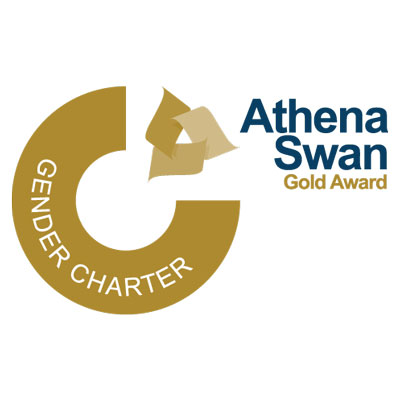
We've been awarded the Athena Swan Gold Award for our commitment to improve equality, and being an inclusive and supportive place to work and study.
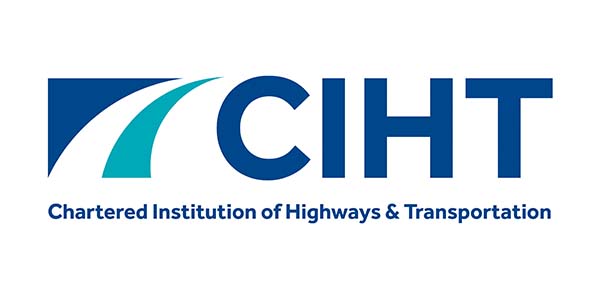
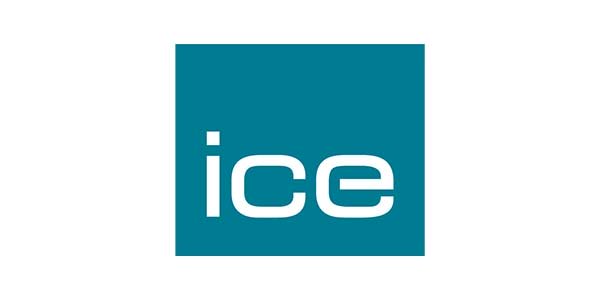
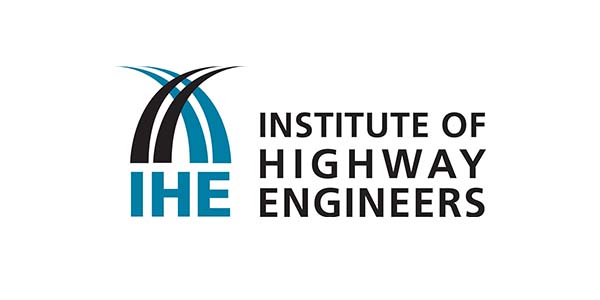
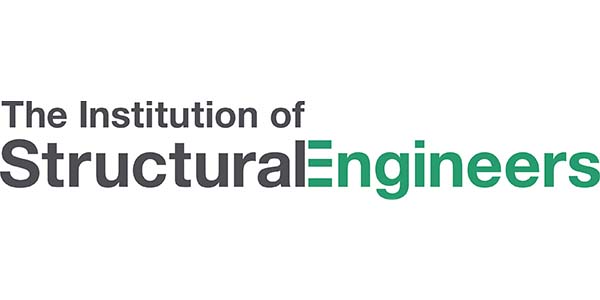
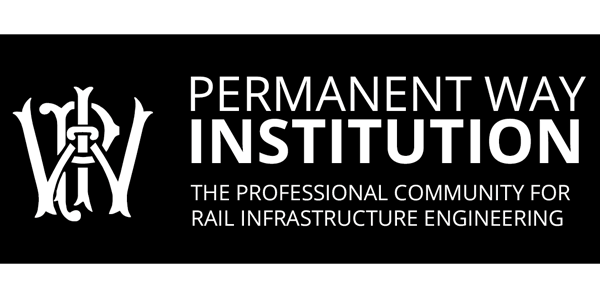
Attendance
One year full-time study involves attendance at classes over two terms, plus a dissertation during the third term.
Part-time (open to UK/EU students only) involves class attendance in Years 1 & 2 and a dissertation in Years 2 or 3. Depending on timetables, just two days work release per week may be needed for 24 weeks in the year.
You can also study this course part-time through online distance learning, over 36 months, offering a flexible learning mode of study.
Flexible learning
If you can't attend this course full-time on campus, there are various Flexible Learning options available to you.
Distance learning
You can also study this course by Distance Learning, which is based on three years part-time study of 60 credits per year.
This allows you to complete the course by studying online at home at a time that suits you, without attending at our Glasgow campus. This means you can study while balancing your existing work and family commitments. This option is suitable for students located anywhere in the world.
Facilities
Our £6 million state-of-the-art laboratory facilities are well-equipped with high-technological instrumentation and available space to investigate:
- environmental & molecular microbiology
- environmental chemistry
- analytical chemistry
- geomechanics & soil quality
- structural design & material science
Teaching staff
The Department of Civil & Environmental Engineering at Strathclyde has one of the strongest Geo-Engineering focus of any related department in the UK.
- Dr Christopher Gallacher, Course Leader
Most of our staff are also part of the Centre for Water, Environment, Sustainability & Public Health and the Centre for Ground Engineering and Geosciences.
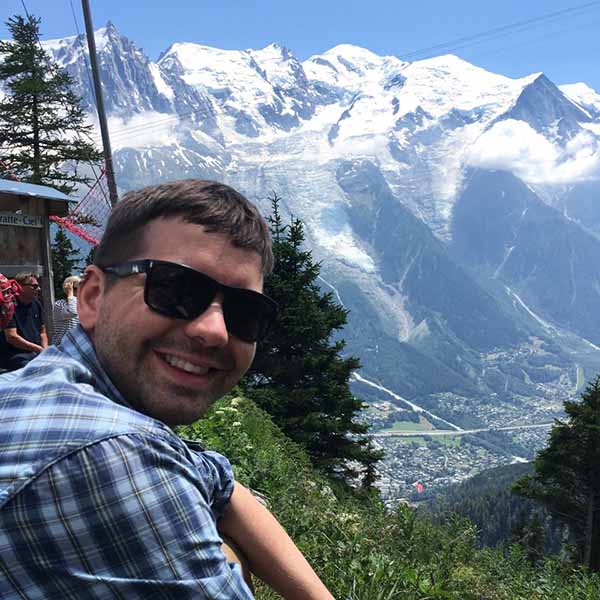
The course allowed me to connect with industry contacts and granted me the opportunity to focus on a unique topic for my dissertation and refine advance analytical skills.
Course content
Distance learning
Classes marked * are available for distance learning, in addition to on campus.
Environmental Geochemistry* (10 credits)
This class will explore the controls of chemical composition of water resulting from geochemical reactions in nature. Students will develop an understanding of geochemical thermodynamics, as well as an understanding of weathering.
Aquifer Mechanics* (10 credits)
The class covers the areas of:
- Hydrogeology and Subsurface Fluid Flow
- Well Hydraulics and Pumping Tests
- Contaminant Transport in the Subsurface
- Real-world applications of Hydrogeology
Contaminated Land* (10 credits)
Within the background of land redevelopment (residential, industrial/commercial and gardens/parks), this class, run by the Department of Civil and Environmental Engineering, aims to provide insights into the remediation of contaminated land, including the regulatory framework and risk assessment, sampling and analysis, and various remedial techniques for contaminated land.
On completion of this class you're expected to be able to:
- identify possible human health and environmental risks associated with contaminated land management
- demonstrate a working knowledge of the regulatory framework in place in the UK for contaminated land management and remediation, including relevant legislation, policies and regulations
- evaluate critically the range of technologies that may be suitable for various types of contamination present.
make informed decisions about technologies for contaminated land remediation based upon technical solutions, risk assessment & management, planning and financial constraints
Global Water Policy* (10 credits)
This class, run by the Department of Civil and Environmental Engineering, aims to provide students with the ability to:
- recognise the issues relating to overall global water policy and its interactions with other global issues
- discuss the impact of climate change and economic development on water resources and availability
- explore the different implementation issues based on regional case studies
- explore the role of stakeholders on the acceptance and achievement of policy objectives
The class also covers water policy from an international perspective focusing on transboundary issues and a review of the Sustainable Development Goals (SDG) that tie into water law and water policy.
Groundwater Flow Modelling* (10 credits)
This class provides you with an understanding of:
- Groundwater Flow Modelling Principals
- Well Hydraulics and Pumping Tests Analysis using Groundwater Flow Models
- Contaminant Transport Modelling
- Geochemical Modelling
Research methods for quantitative & qualitative approaches* (10 credits)
In this class, dedicated to the MSc and MRes students in the Department of Civil & Environmental Engineering, students will acquire familiarity with, and practice of, research techniques, and examine different ways of, and gain experience in, presenting research results. The course discusses the key principles, and practical exercises, on both quantitative and qualitative research methods, such as observation methods, survey methods, interviewing techniques and statistical methods. The course also includes discussion of ethical issues. Finally, the course covers writing skills and use of literature, which is relevant to all classes
Site Investigation & Risk Assessment* (10 credits)
This class explores the complete sequence of a site investigation:
- Desk study
- Site sampling organisation and techniques
- Data collection
- Chemical analysis
The class also covers data modelling and interpretation using risk assessment models.
Hydrogeology* (10 credits)
This class, run by the Department of Civil Engineering, will help you to:
- gain an understanding of Hydrogeology as a discipline
- discuss and explore the physical mechanisms of water movement in the subsurface
- undertake experiments in the lab that demonstrate key principals of groundwater movement
- explore hydrogeological issues based on case studies
Please note, not all classes may be offered each year.
Environmental Impact Assessment* (10 credits)
Environmental impact assessment (EIA) relates to the process of identifying, evaluating, and mitigating the biophysical, social, economic, cultural and other relevant effects of development proposals prior to major decisions being taken and commitments made. This class, run by the Department of Civil & Environmental Engineering but open to all MSc and MEng students across the University, introduces the methods used to predict environmental impacts, and evaluates how these may be used to integrate environmental factors into decisions.
The class draws principally on the UK planning context of environmental impact assessment of individual projects (project EIA), but also takes account of EIA experience in other countries and international organisations. Participants evaluate the quality of Environmental Statements (or EIA Reports) and of the EIA process using the Institute of Environmental Management and Assessment (IEMA) methodology.
The class discusses how EIA can be used a pro-active design tool for projects and how it can contribute to the enhancement of environmental, social and health issues. Students are also introduced to key principles of Strategic Environmental Assessment (SEA) and biodiversity net gain (BNG). Class has the contribution of key practitioners in the field and includes different case studies, such as proposed onshore and offshore windfarms.
Fundamentals of Environmental Forensics* (10 credits)
This class provides you with an understanding of:
- environmental forensics as a subject
- a range of contaminants found in the environment, and their fate and transport
- approach and analytical techniques to determine the responsible parties for contamination found in the environment
- real-world applications of environmental forensics
Geographical Information Systems (GIS)* (10 credits)
This class, run by the Department of Civil and Environmental Engineering, introduces Geographical Information Systems (GIS) and spatial data analysis. The course covers the key theory with a strong focus is on practical applications. Students will develop skills to apply GIS independently to real world datasets and problems. The student will need to independently develop spatial research questions, find, or collect relevant data and perform a state-of-the-art spatial analysis. GIS is a digital tool for analysing spatial phenomena. It focusses on spatial data, so data where the location of the data is just as important as the data itself. GIS allows us to organize, visualize and analyse this data in a spatial context, so that we can interpret and understand the underlying processes. GIS can be used in a wide range of fields for example in engineering (site selection, flood risk, transport planning, impact of construction), environmental science (e.g. soil erosion, health and disease, pollutant transport, landscape visual impact assessment, wildlife preservation), business (e.g. asset management, customer relations) to policy making (e.g. urbanization, deforestation, spatial distribution of crime).
Independent Study in Collaboration with Industry* (10 credits)
This class, run by the Department of Civil & Environmental Engineering but open to all MSc and MEng students across the University, allows students to carry out projects and placements with industry to develop and refine professional skills while gaining credits in the process. Since 2012 students have carried out more than 300 industry projects as part of this class for a very wide range of organisations. Approval of students being able to take this module is done on a case-by-case basis by staff and industry contacts. Students are selected by competitive application and CV. Although this is a S1+S2 class, realistically most of the work is done in S2 (approximately 25% in S1 and 75% in S2). It is highly recommended that all students that are potentially interested in taking this module attend the first information session in September in week 1 of S1 (find room number by searching class CL973 in the timetables).
Waste Management & Landfill Design* (10 credits)
This class, run by the Department of Civil and Environmental Engineering, covers organisational and regulatory aspects of waste management practice in the UK:
- legislation
- composition of domestic and industrial wastes
- storage
- collection
- reception
- disposal of solid wastes, clinical wastes, sewage sludge disposal, recycling and recovery
The class discusses common methods used in the management and treatment of solid municipal waste:
- recycling
- thermal treatment of solid waste (incineration, gasification, pyrolysis)
- biological treatment of solid waste (anaerobic digestion and composting)
- landfill as a disposal option
Water & Environmental Management* (10 credits)
This class, run by the Department of Civil and Environmental Engineering, aims to develop an understanding of the physical, chemical and biological parameters within surface water and how these relate to water quality, water quality objectives and pollution control strategy. The class also provides knowledge on the design and control of water and wastewater treatment processes. On completion of this class students are expected to be able to:
- understand the properties of surface water and how alterations to these, e.g. due to pollution events, can have an impact on water quality, biodiversity and human health
- discuss the impact of legislation on surface water quality
- discuss collection and treatment of community wastewater
- discuss treatment and provision of drinking water
Principles of Environmental Microbiology* (10 credits)
This class, run by the Department of Civil & Environmental Engineering, introduces microbiology in a manner that is of practical importance in environmental engineering and science. Topics covered include:
- the microbial ecology and microbiology of dilute nutrient solutions such as lakes, subsurface environmental and biological treatment processes
- microbial physiology
- biochemistry
- biodegradation
- public health aspects of microbiology
Engineering Hydrology* (10 credits)
This class, run by the Department of Civil & Environmental Engineering, aims to explore the hydrological cycle and the influence of weather, climate and the key processes of the environment.
You'll develop application of hyrdological cycle for engineering analysis and design, including:
- estimating precipitation, including spatial distribution analysis techniques
- estimating evaporation and evapotranspiration
- estimating other hydrological losses, including infiltration
You'll also develop skills examining catchments using Engineering Hydrology approaches, including:
- analysing relationships between precipitation, runoff and storage
- analysing hydrographs
- examining the influence of urbanisation and land management practices
- introducing drainage design techniques and analysis
- sustainable urban drainage systems
Entry requirements
| Academic requirements | A first-class or second-class honours degree (or international equivalent) in earth sciences, civil engineering, environmental engineering or related disciplines. Lower degree classifications might be considered if there is strength elsewhere (for example, relevant work experience, excellent final project/dissertation, very strong academic letter of reference, very strong application statement linking with career goals). |
|---|---|
| English language requirements | If English is not your first language, please visit our English language requirements page for full details of the requirements in place before making your application. |
Pre-Masters preparation course
The Pre-Masters Programme is a preparation course held at the University of Strathclyde International Study Centre, for international students (non-UK/Ireland) who do not meet the academic entry requirements for a Masters degree at University of Strathclyde.
Upon successful completion, you'll be able to progress to this degree course at the University of Strathclyde.
Chat to a student ambassador
Want to know more about what it’s like to be a student at the University of Strathclyde? A selection of our current students are here to help!
Our Unibuddy ambassadors can answer all the questions you might have about courses and studying at Strathclyde, along with offering insight into their experiences of life in Glasgow and Scotland.
International students
We've a thriving international community with students coming here to study from over 140 countries across the world. Find out all you need to know about studying in Glasgow at Strathclyde and hear from students about their experiences.

Fees & funding
All fees quoted are for full-time courses and per academic year unless stated otherwise.
Fees may be subject to updates to maintain accuracy. Tuition fees will be notified in your offer letter.
All fees are in £ sterling, unless otherwise stated, and may be subject to revision.
Annual revision of fees
Students on programmes of study of more than one year (or studying standalone modules) should be aware that the majority of fees will increase annually.
The University will take a range of factors into account, including, but not limited to, UK inflation, changes in delivery costs and changes in Scottish and/or UK Government funding. Changes in fees will be published on the University website in October each year for the following year of study and any annual increase will be capped at a maximum of 10% per year. This cap will apply to fees from 2026/27 onwards, which will not increase by more than 10% from the previous year for continuing students.
| Scotland | £12,550 £5,100 (distance learning per 60 credits) |
|---|---|
| England, Wales & Northern Ireland | £12,550 £5,100 (distance learning per 60 credits) |
| Republic of Ireland |
If you are an Irish citizen and have been ordinary resident in the Republic of Ireland for the three years prior to the relevant date, and will be coming to Scotland for Educational purposes only, you will meet the criteria of England, Wales & Northern Ireland fee status. For more information and advice on tuition fee status, you can visit the UKCISA - International student advice and guidance - Scotland: fee status webpage. Find out more about the University of Strathclyde's fee assessments process. |
| International | £31,900 £5,100 (distance learning per 60 credits) |
| Available scholarships | Take a look at our scholarships search for funding opportunities. |
| Additional costs | International students may have associated visa and immigration costs. Please see student visa guidance for more information. |
Please note: the fees shown are annual and may be subject to an increase each year. Find out more about fees.
Scholarships available for September 2026
Faculty of Engineering International Scholarship for Masters Study
We are delighted to offer our Faculty of Engineering International Scholarship for Masters Study for applicants to postgraduate taught degrees starting in September 2026. The scholarship award of £6,000 will be deducted from tuition fees.
Dean's International Excellence Awards
We also have a limited number of Dean’s International Excellence Awards for postgraduate taught applicants joining the Faculty of Engineering in September 2026. These scholarships are worth between £9,000 and £12,000 and will be offered to exceptional applicants at postgraduate taught level only.
How can I fund my course?
Scottish postgraduate students
Scottish postgraduate students may be able to apply for support from the Student Awards Agency Scotland (SAAS). The support is in the form of a tuition fee loan and for eligible students, a living cost loan. Find out more about the support and how to apply.
Don’t forget to check our scholarship search for more help with fees and funding.
Students coming from England
Students ordinarily resident in England may be to apply for postgraduate support from Student Finance England. The support is a loan of up to £10,280 which can be used for both tuition fees and living costs. Find out more about the support and how to apply.
Don’t forget to check our scholarship search for more help with fees and funding.
Students coming from Wales
Students ordinarily resident in Wales may be to apply for postgraduate support from Student Finance Wales. The support is a loan of up to £10,280 which can be used for both tuition fees and living costs. Find out more about the support and how to apply.
Don’t forget to check our scholarship search for more help with fees and funding.
Students coming from Northern Ireland
Postgraduate students who are ordinarily resident in Northern Ireland may be able to apply for support from Student Finance Northern Ireland. The support is a tuition fee loan of up to £5,500. Find out more about the support and how to apply.
Don’t forget to check our scholarship search for more help with fees and funding.
International students
We've a large range of scholarships available to help you fund your studies. Check our scholarship search for more help with fees and funding.

Personally, I found the MSc to be successful and beyond my greatest expectations...I thoroughly enjoyed doing the MSc and would have no hesitation recommending it to anyone.
Distance learning student (Middle East)
Alumni Scholarship
Strathclyde graduates can get a 15% tuition fee discount on postgraduate taught courses running in September and January. All alumni will be eligible for the discount, including those who have studied at Strathclyde on an exchange or study abroad programme.
Careers
Graduates with an MSc in Hydrogeology are in very high demand as there is an expected shortage of hydrogeologists that will continue for the next decade.
Additionally, throughout the world, the issue of water scarcity, water security, water economics and health and sanitation all rely on high-quality hydrogeology knowledge.
How much will I earn?*
- starting salaries for hydrogeologists with a relevant Masters degree can be up to £25,000 per year.
- Salaries for hydrogeologists with around five years' experience, typically range from £30,000 to £40,000 per year
- Experienced professionals and managers may earn in excess of this
*Information is intended only as a guide and information is taken from Prospects (January 2023).
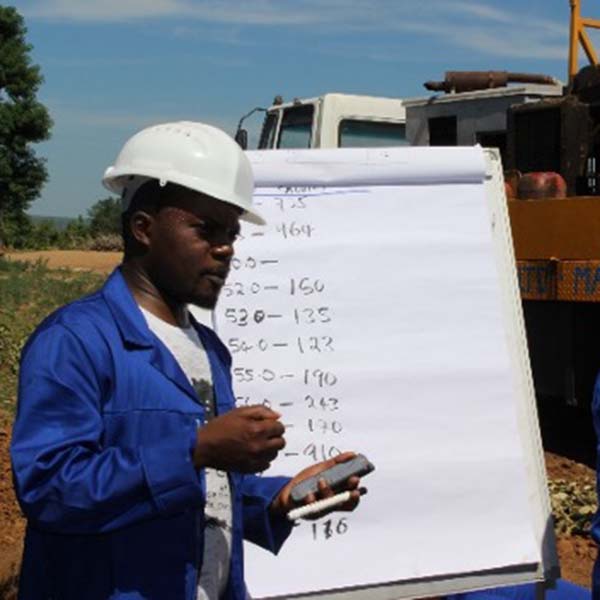
Studying as a Distance Learning student gave me ample time to multitask the demands for my current work, as a Programme Hydrogeologist, as well as have some time with my family.
Distance learning student (Malawi)
Glasgow is Scotland's biggest & most cosmopolitan city
Our campus is based right in the very heart of Glasgow. We're in the city centre, next to the Merchant City, both of which are great locations for sightseeing, shopping and socialising alongside your studies.
Apply
To apply, click on the relevant apply button
As part of the admissions process, you must upload the following supporting documentation. We will be unable to process your application if these are not provided:
- official semester mark sheets/academic transcript showing subjects taken and grades achieved for all qualifications. If you're still studying, please provide your individual semester mark sheets to date
- certified degree certificate for all qualifications. If you're still studying, please provide this after completing your qualification
- evidence of suitable English language proficiency if English is not your first language, or you're not from a “UKVI recognised "Majority English Speaking" country”; check the University’s language requirements
- if you have been out of full-time education for over two years, provide a CV, detailing employment history, organisations worked for, and a brief description of roles and responsibilities demonstrating expertise, skills and suitability for the programme
- a copy of your passport containing your photo and passport number
- a copy of your sponsor letter/scholarship award (if appropriate)
- names, job titles and email addresses of two nominated referees
Start date: Sep 2026
Hydrogeology (online)
Start date: Sep 2026
Hydrogeology
Start date: Sep 2026
Hydrogeology
Contact us
Have you considered?
We've a range of postgraduate taught and Masters courses similar to this one which may also be of interest.

